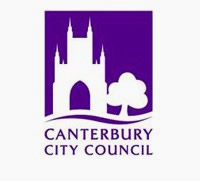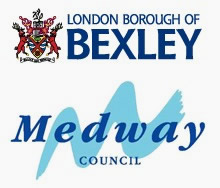Talking People Out of SEO #4: Cut Off (Some) Long Tails
23/10/2012
Unscrupulous SEO agencies, let me count thy ways…
- Thou shalt tout SEO as the be-all and end-all of online marketing which generates masses of free traffic to those with the wisdom to hire thy agency to do it
- Thou shalt pretend complete ignorance of the term ROI
- Thou shalt make enormous promises of boosting Google rank and getting websites to the first page without making reference to personalised search
- Thou shalt guarantee top spot for overly specific long tail keywords which are not necessarily relevant to thy client’s business needs
- Thou shalt measure results purely on the basis of rankings or page traffic rather than meaningful business metrics
- Thou shalt not provide any useful reports or insights on work carried out each month except thy invoices to thy client
- Thou shalt content spam, link spam, article spin and generally use incredibly black hat SEO tactics, in thy mercy…
 In the first part of this series of seven articles examining reasons not to do dedicated search engine optimisation work on a website, we looked into the reasons why SEO might not be the be all and end all of online marketing in your business sector. In the second we discussed how the use of SEO and other online marketing activities should be governed by projected return on investment for each activity. In the third we looked at one of the most common promises made by dodgy SEO firms and why modern search engine algorithms make aiming for the top spot a completely redundant aim for today’s marketers. Now let’s talk about another cardinal sin committed regularly by dodgy SEO marketers – guaranteed top spots for given keywords.
In the first part of this series of seven articles examining reasons not to do dedicated search engine optimisation work on a website, we looked into the reasons why SEO might not be the be all and end all of online marketing in your business sector. In the second we discussed how the use of SEO and other online marketing activities should be governed by projected return on investment for each activity. In the third we looked at one of the most common promises made by dodgy SEO firms and why modern search engine algorithms make aiming for the top spot a completely redundant aim for today’s marketers. Now let’s talk about another cardinal sin committed regularly by dodgy SEO marketers – guaranteed top spots for given keywords.
As has already been discussed, there is a substantial amount of pointlessness to discussing absolute search engine rankings under any circumstances, but this is even more true than usual when it comes to so-called long tail keywords. For those unsure of the parlance these are very lengthy keywords made up of several phrases which specify search results to an often silly degree of detail. An example would be four person self-catering holiday thatched cottages outside Bridge, Canterbury.
Now before we all start lopping tails off keyword phrases across the board, let’s make something clear: long tail keywords do have a place and a use in search marketing. People looking for very particular things often know what they want – such as a certain type of cottage in a given location, or a specific named product – and are searching for it with credit card in hand (as it were) which can make them far more valuable than people who are just browsing, looking for things more generally (self-catering holiday cottages in Kent) and thus further from being ready to actually spend their money. So yes, longer tailed keywords do have value and absolutely should have a place in search marketing strategy. They should not be the final word, however.
A very common tactic – one we’ve often heard bemoaned by clients who have since fled the area and come to us – which cheeky SEO firms use is to offer a guarantee of top spot on Google (or wherever) for a selection of x or y keywords, with x or y rising in correspondence with the amount of money paid. To the less educated this can sound like a great deal – guaranteed results or your money back, first class stuff, what could go wrong? People accordingly sign up, hand over their cash and sit back with a smug sense of satisfaction when their very very long tail keywords (selected by the firm of course) are showing up consistently at the top of their search results. That’s all well and good, and for the one person a month who might actually type in the precise keyword you’ve paid for then you’re sorted, but I’ve yet to meet any business that could survive with only one or two customers a month (and that’s assuming you’ll even convert these visitors into paying customers).
That’s why you need to target your broad matches when doing your keyword research too. Focusing solely on long tailed and specific searches can potentially give you an enormously high conversion rate, but remember that 100% of 1 is still 1, and keep an eye on the potential traffic for a keyword before you start going nuts with optimisation. Tools like the Adwords traffic estimator and Google Trends are invaluable for both identifying potential search traffic and locating related phrases which you might not have thought of, both of which are an essential part of formulating plans for a search marketing campaign.
If you’re baffled by blogs and lost in links, pick up the phone and call 0330 555 4680 today to find out how Cornish WebServices can help you build a sensible and sustainable set of online marketing to include SEO, PPC, social media and more.
PS we build beautiful websites too!


































